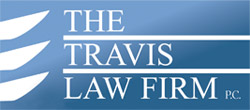
Are Parents Liable for a Teenager’s Car Crash

Parent Liability for a Teen Driver
Who is liable for a teenager’s car crash? When a teenager in Pennsylvania causes a car crash, parents often wonder if they are liable for injuries in the accident. The answer to that question is yes, they are. A teenager is considered underage, and as such, any liability for damages reverts to the parents. Let’s look at the Pennsylvania laws that govern parent liability when their teenager is involved in a car accident.
Vicarious Liability
In many areas of the law, the doctrine of vicarious liability is prominent. This doctrine says that when an employee or a teenager (child) causes damages in a car accident, their boss or parent is responsible. In the case of a teenager’s car crash, the parents become liable for the injuries their child inflicted on another person. However, if the parent does not have custody of the child or the child is emancipated at the time of the incident, the parent is not liable.
Liability for the Actions of Children
Under Pennsylvania Statute, 23 Pa. Cons. Stat. § 5502, the liability of Pennsylvania parents for motor vehicle accidents caused by their children is clearly defined. The legislature created this law in 1990, using the following definitions:
- Child: A person who is not yet 18.
- Injury: This means accidental bodily harm, theft or destruction of property caused by negligence.
- Parent: This designation includes both adoptive and natural parents.
- Tortious act: A tortious act is a wrongful behavior that causes damage or harm that leads to civil liability (tort) in the form of financial compensation to the injured party. It can be due to an intentional act as well.
Parent Liability
After the teenager is responsible for an accidental or intentional act, the parent(s) become liable for the civil damages assigned to the case. This liability is to the person or persons who suffered harm because of the accident. The financial compensation owed to the injured party is ascertained by the court. The parents are expected to pay the amount, which does not exceed the monetary limits for this type of case (see below). In the event the parents do not pay the amount, then a civil action can be lodged at both or either parent.
Civil Action Against the Parent(s)
If the parents fail to pay the amount they owe for a teenager’s car crash within 30 days, the injured party can petition the court to show cause why a judgment cannot be filed against the parents directly. The parent has the right to answer the petition and may dispute it. A trial is established if the dispute is valid. If the parents do not dispute the facts of the case, a judgment against the parents, within the limits of Section 5505, is put forth.
Monetary Limits
The limits of liability are $1,000 for any one act for the injuries suffered by one person. This also holds true if more than one negligent or intentional act was involved. A limit of $2,500 exists for more than one person’s injuries if one or more tortious acts occur.
When Loss Exceeds Liability
On occasion, the actual damages exceed the parent’s liability. If the loss exceeds $2,500, the parents are not liable for additional payments. The court divides the funds into proportionate separate payments to all involved parties. All parties submit an itemized list to help the court make an equitable assignment of funds.
What Happens When More Than One Child Is Involved?
If two siblings of the same parent cause the damage acting jointly, the limits remain the same. This does not change the monetary limits given above.
The Travis Law Firm
The staff and lawyers at the Travis Law Firm are here to help when parents find themselves liable for negligent or intentional acts of their children. We will help you navigate the existing laws in Pennsylvania and investigate the case thoroughly. Please contact us (814) 277-2222 to schedule a free case review.
Photo attribution: https://pixabay.com/photos/crash-car-car-crash-accident-1308575/
